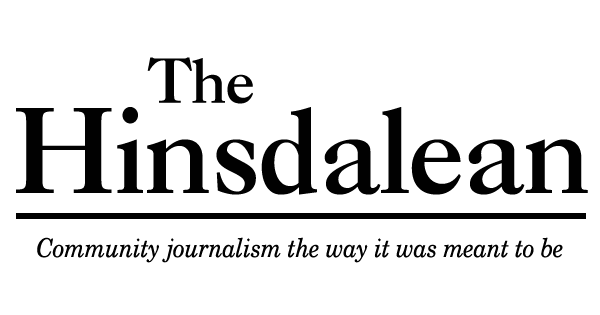Parents Should Have the Freedom to Make Their Own Choices for Their Children


The Ongoing Debate Around Book Bans in Schools: What’s at Stake?
In the ever-evolving landscape of education in America, one issue has recently surged to the forefront—the banning of books in school libraries. Recently, a thought-provoking guest commentary by Bret Conway drew attention to this concerning trend, revealing that there were attempts to censor an astounding 4,240 books in schools and public libraries throughout 2023. With such a significant number, it begs the question: why is this happening, and what implications does it have for our children’s education?
Conway’s commentary takes a critical stance against groups like Moms for Liberty and Awake Illinois, labeling them as extreme factions pushing an agenda that may severely limit students’ access to diverse literature. These groups advocate for parental control over educational content, which they argue helps to shield children from materials they deem inappropriate. However, what happens when this parental control morphs into censorship? Can we draw the line between safeguarding our kids and denying them the rich tapestry of knowledge and experience that literature offers?
Reflecting upon these developments, Helen Corsentino from Hinsdale emphasized the importance of protecting free speech, a fundamental right enshrined in our U.S. Constitution. Furthermore, she pointed out the protections afforded to parents by the 14th Amendment, which grants them the authority to make choices concerning their children’s upbringing—including the education and literature they are exposed to. The balance between parental rights and the educational autonomy of schools is becoming increasingly precarious, particularly with the recent passage of House Bill 2789. This legislation complicates parents’ ability to voice objections against books deemed acceptable by teachers and librarians, raising the alarm for many activists concerned about the erosion of educational freedom.
The dialog around HB 2789 unveils a profound struggle over educational content and access to literature. Supporters of the bill might argue that limiting access to certain books can create a safer learning environment for children. However, critics warn that such measures could lead to a slippery slope where censorship replaces critical thinking and open dialogue—key components of a well-rounded education.
As we navigate these complex waters, one potential solution has emerged: the call for cameras in classrooms. This idea, championed by Corsentino, advocates for transparency in educational settings, positing that “sunlight is the best disinfectant.” By allowing parents to observe what happens in the classroom, the argument goes that they can feel reassured about the materials their children are being taught, leading to greater accountability among educators.
However, implementing cameras in classrooms raises significant questions about privacy, the dynamics between students and teachers, and the potential for misinterpretation of classroom interactions. While increased transparency may seem appealing, it must be balanced against the need for educators to foster a free and open environment conducive to learning.
Interestingly, book censorship isn’t a new issue in education. Historically, banning books has often sparked outrage and has drawn attention to the very works that so many wish to suppress. When works like To Kill a Mockingbird, The Catcher in the Rye, and Harry Potter find themselves on a list of censored materials, the ensuing debate typically catalyzes a resurgence of interest in these texts. It becomes clear that attempts to restrict access often lead to broader discussions about freedom of expression and the importance of diverse perspectives in education.
As these discussions unfold, they remind us of the role that literature plays in fostering empathy, critical thinking, and a love for learning. Books are not merely words on a page; they are gateways to understanding the complexities of the human experience. Each narrative invites readers to step into someone else’s shoes, navigate different cultures, and confront challenging ideas—skills that are indispensable in our increasingly interconnected world.
The battle over book bans isn’t just about specific titles or authors. It is about the fundamental values we hold as a society regarding education, freedom of speech, and parental rights. This ongoing dialogue is one that must continue, engaging all stakeholders—including parents, educators, students, and policymakers—to ensure that our schools remain places of learning, exploration, and growth.
As we look to the future, it becomes evident that we must contest any attempts to censor the voices and stories that enrich our understanding of the world. As Helen Corsentino succinctly put it, “it’s time for cameras in the classroom”—let the conversation begin, and let us ensure that all voices are heard.






